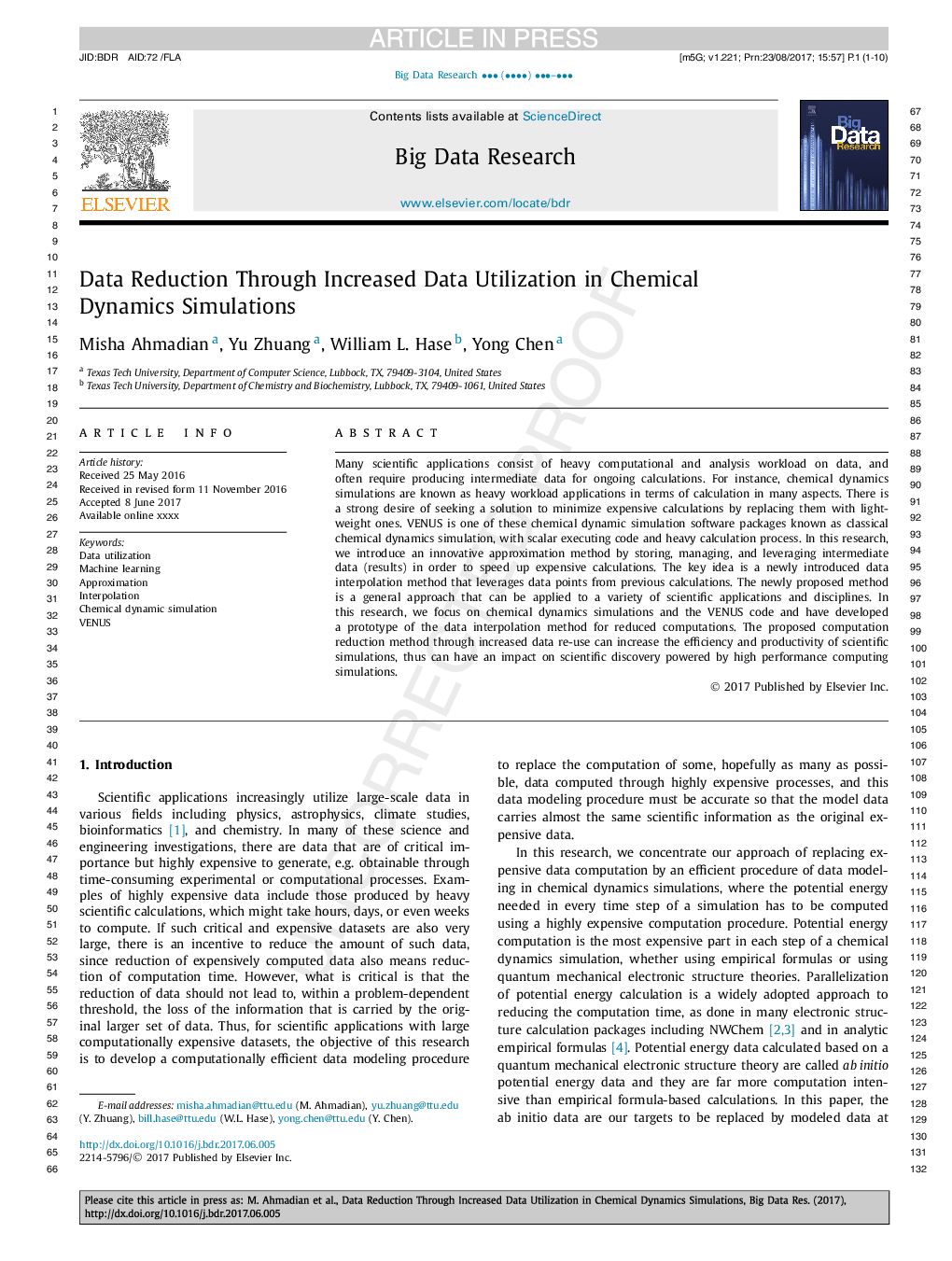| Article ID | Journal | Published Year | Pages | File Type |
|---|---|---|---|---|
| 4949077 | Big Data Research | 2017 | 10 Pages |
Abstract
Many scientific applications consist of heavy computational and analysis workload on data, and often require producing intermediate data for ongoing calculations. For instance, chemical dynamics simulations are known as heavy workload applications in terms of calculation in many aspects. There is a strong desire of seeking a solution to minimize expensive calculations by replacing them with light-weight ones. VENUS is one of these chemical dynamic simulation software packages known as classical chemical dynamics simulation, with scalar executing code and heavy calculation process. In this research, we introduce an innovative approximation method by storing, managing, and leveraging intermediate data (results) in order to speed up expensive calculations. The key idea is a newly introduced data interpolation method that leverages data points from previous calculations. The newly proposed method is a general approach that can be applied to a variety of scientific applications and disciplines. In this research, we focus on chemical dynamics simulations and the VENUS code and have developed a prototype of the data interpolation method for reduced computations. The proposed computation reduction method through increased data re-use can increase the efficiency and productivity of scientific simulations, thus can have an impact on scientific discovery powered by high performance computing simulations.
Related Topics
Physical Sciences and Engineering
Computer Science
Computational Theory and Mathematics
Authors
Misha Ahmadian, Yu Zhuang, William L. Hase, Yong Chen,
